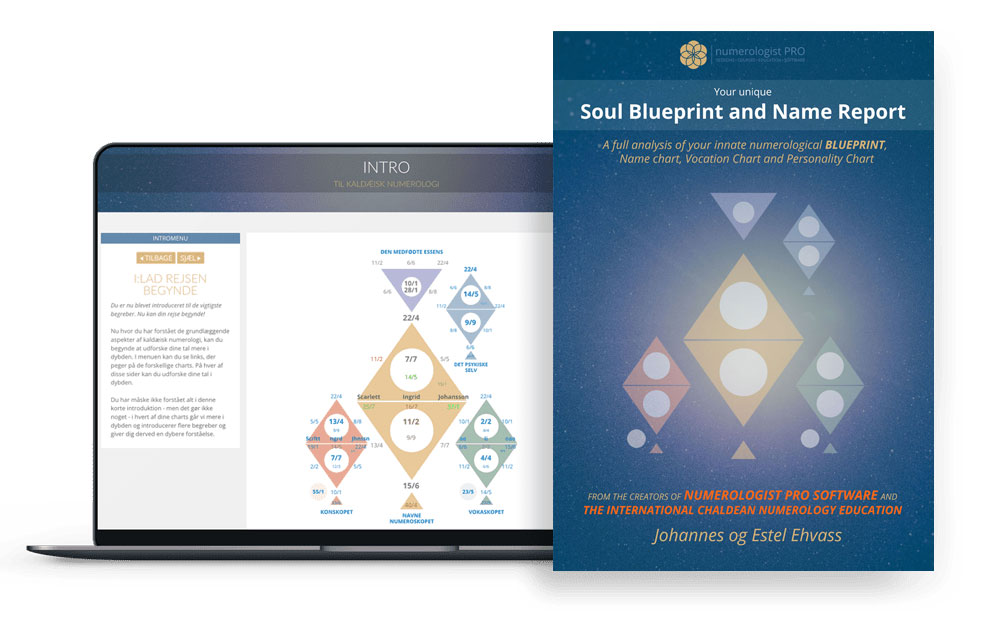Astrology in the Islamic Golden Age: Bridging Cultures and Expanding Knowledge

Johannes Ehvass
Welcome, dear reader! Together, we embark on a captivating journey into astrology, a timeless art and science that has accompanied humanity since its earliest days. Each astrological discovery not only mirrors the era and culture it emerged from but also feels like a celestial gift, as if the universe is directly speaking to us. Through these articles, I share with you the profound journey of how astrology has grown and evolved alongside us. Let's explore this cosmic connection that has, for millennia, enriched our understanding of ourselves and the universe around us.
Introduction

The Islamic Golden Age, spanning the 8th to the 13th centuries, was a period of unprecedented intellectual and cultural growth in the Islamic world. In the midst of this flourishing, astrology found a fertile ground, becoming a prism through which Islamic scholars not only explored celestial phenomena but also absorbed, integrated, and advanced ancient astrological traditions from diverse civilizations.
Backdrop: The Rise of the Islamic Caliphates
Following the death of Prophet Muhammad in 632 AD, the rapidly expanding Islamic empire under the Umayyad and later the Abbasid Caliphates came into contact with vast territories from Spain in the West to India in the East. These conquests brought the Islamic world into direct contact with Greek, Persian, Indian, and other ancient cultures, each with its unique astrological traditions.
The Translation Movement
The heart of the Islamic Golden Age’s contribution to astrology lies in the Translation Movement, predominantly centered in Baghdad. Under the patronage of Abbasid rulers, especially Al-Mamun, scholars translated numerous Greek, Sanskrit, and Pahlavi texts into Arabic. This Herculean effort aimed to preserve and expand upon the accumulated wisdom of ancient civilizations.
Astrology and Religion: The Delicate Balance
While astrology thrived, it didn’t go unchallenged in Islamic thought. Many Islamic theologians expressed reservations about its deterministic leanings, seeing potential conflicts with the doctrines of divine will and human agency. Scholars like Al-Farabi and Ibn Sina (Avicenna) worked to reconcile these differences, asserting that astrological influences were not absolute but acted more as predispositions, leaving room for divine intervention and human free will.
The Legacy: Transmission to the West
The astrolabe, an intricate device used for star mapping and timekeeping, epitomizes the Islamic Golden Age’s contributions to astrological practice. Perfected by Islamic scientists, it became an essential tool for Western astronomers and astrologers.
Beyond tools, the vast reservoir of astrological texts translated into Latin during the 12th and 13th centuries played a monumental role in shaping European Renaissance thought. The works of figures like Al-Biruni and Abu Ma’shar were central to this transmission, ensuring that the integrated wisdom of the Islamic world became foundational to Western astrological and astronomical traditions.
Conclusion
The Islamic Golden Age wasn’t just a period of preservation but one of profound synthesis and innovation. By weaving together the astrological traditions of the Greeks, Persians, Indians, and Arabs, Islamic scholars produced a rich tapestry of knowledge that significantly shaped the trajectory of astrological thought and practice for centuries to come.
Notable Figures and Their Contributions
The Islamic Golden Age, spanning roughly from the 8th to the 14th century, was a period of remarkable achievements in science, mathematics, medicine, and philosophy. Astrology was a significant field of study, and numerous scholars made contributions to its body of knowledge. Here’s an overview of some of the key figures, though it should be noted that not every single contributor can be exhaustively listed due to the sheer volume and the fact that many works have been lost or remain untranslated.
Top Contributors to Astrology in the Islamic Golden Age:
- Albumasar (Abu Ma’shar al-Balkhi):
- Perhaps the most influential Islamic astrologer, he integrated Hellenistic and Indian astrology, producing many works including “The Great Introduction to Astrology”.
- Al-Farabi (Alpharabius):
- Known for his works on philosophy and logic, he also wrote on the celestial bodies and their influence on the sublunar world.
- Al-Kindi (Alkindus):
- Often called the “Philosopher of the Arabs,” he wrote over 200 works, many on astrology and astronomy, including “On the Stellar Rays”.
- Al-Biruni:
- A polymath who authored “The Book of Instruction in the Elements of the Art of Astrology”, he was well-versed in both Indian and Hellenistic astrology.
- Al-Sufi (Azophi):
- He wrote on the constellations and is known for his detailed astronomical observations in “The Book of Fixed Stars”.
- Omar Khayyam:
- Best known for his poetry, he also made contributions to the reform of the calendar and had interests in astronomy and astrology.
- Thabit ibn Qurra:
- A mathematician and astronomer, he translated and commented on many Hellenistic astrological texts.
- Ibn Ezra (Abraham ibn Ezra):
- A Jewish scholar who wrote extensively on astrology and whose works had a profound influence on later medieval European astrology.
- Masha’allah ibn Athari:
- He was an influential early Islamic astrologer who wrote many works, including on the interpretation of eclipses.
Lesser-Known Contributors to Astrology:
- Al-Qabisi (Alcabitius):
- Author of the introductory text on astrology, “The Introduction to Astrology”, which was influential in the medieval West.
- Ibn Hibinta:
- Produced works on astrological influences and meteorology.
- Al-Majriti:
- A mathematician and astronomer, he wrote on the use of astrolabes in astrology.
- Ibn al-Haytham (Alhazen):
- Known for his work on optics, he also wrote on the configuration of the planets.
- Al-Mansur (Almanon):
- The Abbasid caliph known for establishing the House of Wisdom in Baghdad, which became a center for the study of astrological texts.
- Al-‘Urdi:
- Contributed to the development of astronomical instruments, which were crucial for astrological calculations.
- Ibn Yunus:
- An Egyptian astronomer noted for his astronomical observations and his work on the “Hakemite Tables”.
- Ibn Bajjah (Avempace):
- Philosopher and scientist, he touched on the influence of the celestial bodies on earthly affairs.
- Al-Ghazali:
- While he criticized astrology, his work nonetheless had an impact on its philosophical underpinnings.
- Ibn Rushd (Averroes):
- His commentaries on Aristotle included discussions on astrology and its place in the natural sciences.
- Al-Idrisi:
- Noted for his geography, he also contributed to astrological knowledge through his maps and charts.
- Fakhr al-Din al-Razi:
- A Persian polymath who wrote on a wide range of subjects, including astrology.
- Nasir al-Din al-Tusi:
- Made significant contributions to astronomy, which influenced astrological practices.
- Al-Masudi:
- His historical writings include discussions of the astrological beliefs and practices of different peoples.
- Qutb al-Din al-Shirazi:
- A Persian astronomer and mathematician who wrote on the astrolabe, an important tool in astrology.
- Ibn Khaldun:
- His “Muqaddimah” includes a critique of astrology, providing a different perspective on its practices.
This list represents a fraction of the scholars who contributed to the rich tapestry of Islamic astrology. Many works of these and other Islamic scholars were later translated into Latin and other European languages, becoming influential in the Renaissance and beyond. However, due to historical circumstances including wars, conquests, and the passing of time, not all contributors have been recorded or remembered, and their works may not have survived or been widely recognized.

Johannes & Estel: Renowned authorities in Numerology, Astrology, and the esoteric arts. As the founders of Scandinavia's premier Numerology school, we're delighted to share our insights through this curated series on astrology. Dive in and discover the stars.
The Worlds Most Advanced Numerology Report

Your birthdate reveals your unique life purpose, potentials, talents, weaknesses, and karma in this life.
Your names show what you attract into your life regarding your career, relationships, happiness, money, and success.
GET THE REPORT HERE
Introduction to Astrology
The history of Astrology
Moving beyond deterministic astrology
Foundation of Astrology: Planets, Signs and Houses
Astrology and the Holographic Universe
The Holographic Universe
The Human Psyche as a Mirror to The Solar System
The Human Body as a Mirror to The Star Signs
Astrology Background
Egyptian Astrology
Mayan Astrology
Chinese Astrology
Indian Astrology - Jyotish
Celtic Astrology
Tibetan Astrology
Mesopotamian Astrology
Early Mesopotamian Astrology: The Dawn of Celestial Divination
Enuma Anu Enlil: The Epicenter of Babylonian Celestial Omen Interpretation
Babylonian and Chaldean Astrology
Babylonian and Chaldean Astrology
Chaldean influence and evolution
Chaldean Wisdom: Safeguarding and Transmitting Astrological Knowledge
Hellenistic Astrology
Hellenistic Astrology background
Claudius Ptolemy and Tetrabiblos
Vettius Valens
Dorotheus of Sidon
Persian Astrology
Persian Astrology background
Sassanian Astrology
Late Antiquity and The Transition Period
Late Antiquity and The Transition Period
Hellenistic to Islamic Transition: The Torchbearers of Astrological Wisdom
Islamic Golden Age
Arabian Astrology Background
Arabian Astrology Contributions
Medieval Astrology
Introduction: The Medieval Cosmos
Monastic Preservers: Astrological Knowledge in the Dark Ages
Astrology in Medieval Medicine
Kings, Queens, and Constellations: Astrology in the Medieval Court
The Church and the Stars: A Contentious Relationship
Universities and Scholastic Pursuits: Academic Astrology
Astronomy & Astrology: Tools of the Trade
Medieval Astrological Houses and the Synthesis of Traditions
Transition to the Renaissance: Humanism and the Celestial Arts
Reflections: Medieval Astrology's Echoes in Modern Practice
Astrological Art of the Middle Ages
Famous Medieval Astrologers
Medieval Astrological Texts
Renaissance Astrology
Renaissance Humanism and Astrology
Scientific Advancements and Astrology
The Social Fabric: Astrology in Everyday Renaissance Life
Court Astrologers of the Renaissance
Controversies and Conflicts: Astrology Under Scrutiny
Renaissance Texts and Authors: Continuation of a Tradition
Astrology and Art: Celestial Imagery in the Renaissance
Renaissance Astrological Practices: Evolutions and Innovations
End of the Renaissance: The Gradual Decline of Astrological Influence
Renaissance Astrology's Echo in the Modern World
Enlightenment Astrology
Introduction: The Enlightenment and Astrology
Challenging the Stars: Astrology's Critics during the Enlightenment
Astrology and the New World
Astrology in the 19th Century
The Dawn of Psychological Astrology
Astrology in the 20th Century: A Modern Renaissance
Astrological Associations and Schools
Modern Controversies and Astrology
Astrology and Popular Culture
Astrology and Technology
Current Trends and Future Directions in Astrology
Conclusion: Reflecting on Astrology's Evolution
The Planet Significances
The Sun in Astrology
The Moon in Astrology
Mercury in Astrology
Venus in Astrology
Mars in Astrology
Jupiter in Astrology
Saturn in Astrology
Uranus in Astrology
Neptune in Astrology
Pluto in Astrology
Chiron in Astrology
Black Moon Lilith in Astrology
Pars Fortuna in Astrology
Ceres in Astrology
Houses in Astrology
Introduction to Astrological Houses
The Angular Houses
The Succedent Houses
The Cadent Houses
The 1st House
The 2nd House
The 3rd House
The 4th House
The 5th House
The 6th House
The 7th House
The 8th House
The 9th House
The 10th House
The 11th House
The 12th House
Interaction Between Houses
Derived Houses, House Rulers, and Interceptions
Conclusion: Synthesizing House Knowledge
All Materials © 2023 & 2024 Numerologist PRO
Terms of Service: Information provided by Numerologist PRO and/or from this web site is not intended as advice (medical, psychological, financial or other), nor is it intended to replace your work with a qualified professional (medical or otherwise). You should maintain your relationship with your providers and consider the services of this site as informational only. Any information, stories, examples, or testimonials presented on this website do not constitute a warranty, guarantee, or prediction regarding the outcome of an individual. This web site is a sharing of knowledge and information of numerology/energy work based on the experiences of Numerologist PRO. You are encouraged to make your own decisions based on your own research and inner guidance. By booking and receiving services, you agree to fully release and hold harmless Numerologist PRO and all it's affiliated numerologists from and against any liability or claim that may arise out of or in connection with their service(s).
Numerologist PRO © 2021

CONTACT
numerologist@numerologistpro.com
LIKE US, and get free numerology tools, info about your personal numbers, best business dates of the year - and more!
YOUR FREE NUMEROSCOPE CHART
Enter your name and email below and get access to our free online numerology chart tool.